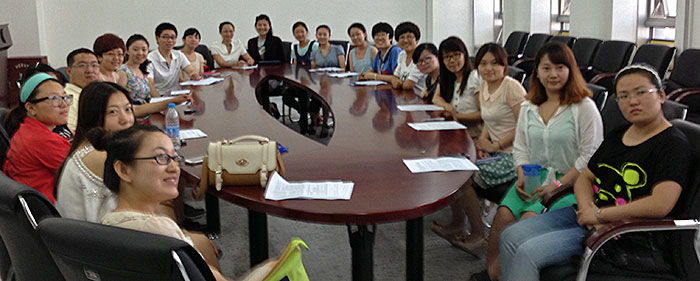Journal Clubs That Go Beyond Discussing the “Key Take-Aways,” Have Global Impact
If you’ve ever sat through a journal club meeting where the article headlines were just re-hashed, you’re not alone. Over time, journal clubs tend to get stale. Pitfalls, like choosing from a limited range of topics, and having only two or three people who are consistently willing to rotate leading discussions, are common.
Yet the need for clinicians to stay abreast of research, technical advancements, and controversial professional issues is a constant which can’t be fulfilled by attending annual meetings.
William C. Dodson, M.D., of Penn State Hershey Obstetrics and Gynecology, has taken on the challenge of making journal clubs a key part of ongoing, meaningful medical education worldwide. In 2009, as part of Dodson’s longtime leadership role with Obstetrics and Gynecology (i.e. the Green Journal), he and Cathy Spong, M.D., from the National Institutes of Health (NIH), began to create a monthly journal club feature aimed at enhancing the journal club experience (journals.lww.com/greenjournal). “Each month, for two articles from the current issue, we develop facilitator questions intended to lead club members to critically weigh the most salient points of each manuscript. It’s like providing a study guide for club facilitators, so even if they aren’t experts on a given topic or technique, they can lead discussion.”
With an obstetrics and gynecology readership worldwide, Dodson’s efforts have a global reach. In fact, at China’s Heilongjiang University of Chinese Medicine in Harbin, Ilene Tsui, a Penn State Hershey medical student, conducted a randomized controlled study to evaluate use of the journal club feature as an English-language teaching tool for medical students and professionals in obstetrics and gynecology. Participants assigned to twenty-four structured journal club meetings showed significant improvements from baseline on a multiple choice examination on related topics. In addition, the study suggests that a journal club significantly and selectively improves both written and verbal medical English proficiency. The findings1 were presented at the American College of Obstetricians and Gynecologists Annual Clinical Meeting in April.
“This study shows the journal club has significant value as a teaching tool. We designed [the monthly features] to help lower barriers to understanding recent advances in the field, so that clinicians anywhere may find the discussions interesting and helpful to women’s health care around the globe,” said Dodson.
 William C. Dodson, M.D., FACOG
William C. Dodson, M.D., FACOG
Chief, Reproductive Endocrinology
Penn State Hershey Obstetrics and Gynecology
717-531-6464
FELLOWSHIP: Reproductive Endocrinology, Duke University Medical Center
RESIDENCY: OB/GYN, Duke University Medical Center
MEDICAL SCHOOL: Temple University, School of Medicine
BOARD CERTIFICATIONS: Obstetrics and Gynecology; Reproductive Endocrinology and Infertility
REFERENCE:
1 Tsui IK, Dodson WC, Kunselman AR, et al. Trial of a journal club to improve medical English in Chinese medical professionals. Poster presented at: American College of Obstetricians and Gynecologists Annual Clinical Meeting, April 26-30, 2014, Chicago, IL.

